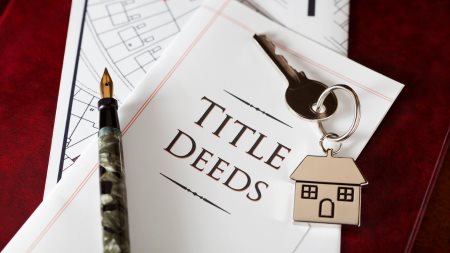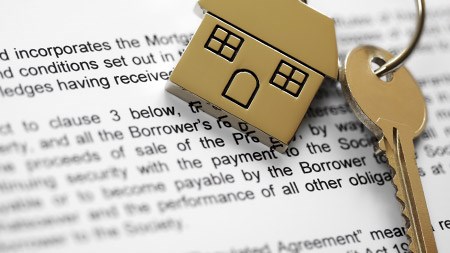While the Deeds Office maintains comprehensive records of property ownership and rights, not every square metre of land in South Africa is individually surveyed and registered. Registration applies to defined parcels of land, such as erven (plots), sectional title units, and other legally designated properties, rather than an exhaustive survey of all land.
The Deeds Office is a government entity, which falls under the Department of Agriculture, Land Reform and Rural Development. It is tasked with recording and maintaining public records and documents related to real estate ownership, and ensures that all property transactions are undertaken within the rule of law, and transparently.
For each parcel of property sold, the existing Title Deed must be updated and issued in the new owner’s name, which can only take place once the property’s transfer documents are signed, and submitted by a conveyancing attorney to the Deeds Office.
There are 11 Deeds Registries in South Africa, located in Cape Town, Pretoria, Johannesburg, Pietermaritzburg, Polokwane (Limpopo), Bloemfontein, King William’s Town, Kimberley, Vryburg, Nelspruit (Mpumalanga), and Mthatha.
A Title Deed is a registered legal document that proves ownership of a property. Attached to each Title Deed is a unique identifier number, that can be used to retrieve information about the property.
This includes:
The name and identification number of the registered owner.
The purchase price, when bought, and previous owner.
Size, including boundaries and exact position.
Type of property (eg: land, freestanding house etc), and conditions of usage.
Rules, and exclusive use area, if a sectional title scheme.
Information that may restrict the sale of a property, such as an existing home loan that needs to be cancelled.
Any new bond registered against the property.
Zoning type, such as whether the area is residential, or purely business or commercial.
All homeowners are entitled to acquire a copy of their Title Deed. It is only once it is proven that there is no outstanding debt on the property, such as a home loan, that an original is provided to the registered owner. In the meantime an electronic, or digital, copy can be applied for online via www.deedsoffice.online, at a cost of under R200, or a direct delivery fee of around R550.
The process and timing of issuance:
The conveyancer lodges the property transfer documentation at the Deeds Office, where data capturing is undertaken.
Deeds are examined by three levels of examiners, with the final level being a senior examiner who will pass or reject the deed application.
Rejected deeds are returned to the conveyancer, and those passed are sent for preparation by conveyancer’s and their clerks.
A final check concerns interdicts, which are restrictions against a property or a person.
A simple example is when the seller has defaulted on their home loan with a bank to the extent that the bank has ‘attached’ the home due to the outstanding debt. Should this be the case, the buyer will need to come to an agreement with the bank to settle the outstanding amount.
Authorised Deeds are executed and sent to the conveyancing attorney, who will arrange delivery or collection with the new owner, or to the bank that is buying the property in the new owner’s name.
Assuming all progresses smoothly, the Title Deed is processed between 10 days to three weeks.
Home loans and Deeds
Once a home loan is paid up, the Title Deed is not automatically issued to the owner. The bank will instruct a cancelation attorney to cancel the bond, the cost of which is for the owner, at a cost of up to approximately R3000. The attorneys will lodge consent of the cancellation at the Deeds Office, where the bond can be cancelled and the Title Deed issued. While completing the cancellation documentation, new owners must confirm whether they will be cancelling their building insurance (if applicable) at the same time or keeping it in place after registration.
It is important to note that Title Deeds can be accessed by any member of the public, wiling to pay a search and find fee. It is, however, reassuring that South Africa is considered to have one of the most comprehensive system of Deeds Registry in the world.
For further information refer: The Importance of a Title Deed.




